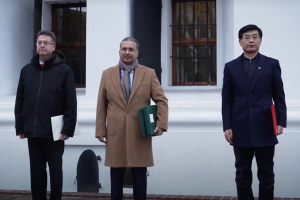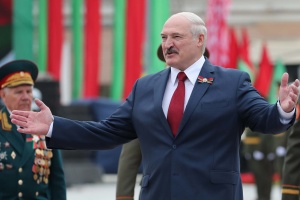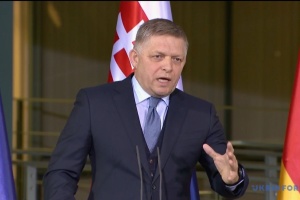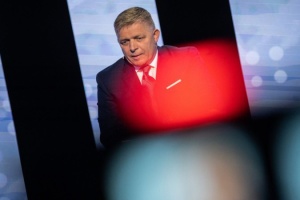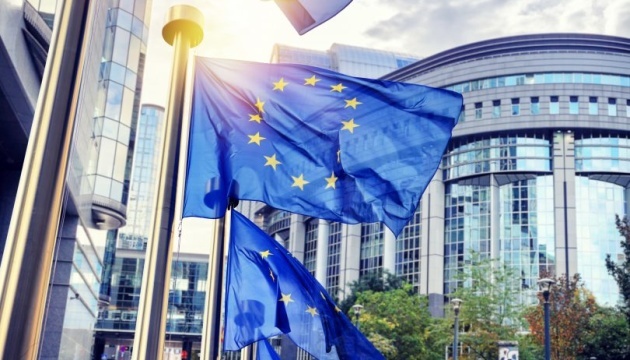
Putting Orban in his place: EU has options - up to elimination of veto
Last week, the European Parliament launched the EU reform by a majority vote by adopting a resolution. Among the key provisions of the document is "expanding the range of decisions to be taken by a qualified majority rather than unanimously."
What does this mean?
Currently, the EU is forced by European treaties to approve many of its decisions unanimously, i.e. by consensus. However, it sometimes happens that some EU member states disagree with something, such as Hungary, which, through its pro-Russian Prime Minister Viktor Orban, continues to put a spoke in the wheel by sabotaging aid to Ukraine.
Orban recently stated that the decision to open negotiations on Ukraine's accession to the EU, which is to be adopted at the December 14-15 summit in Brussels, is a mistake. Moreover, he promised to correct it, threatening to block our country's European integration in general.
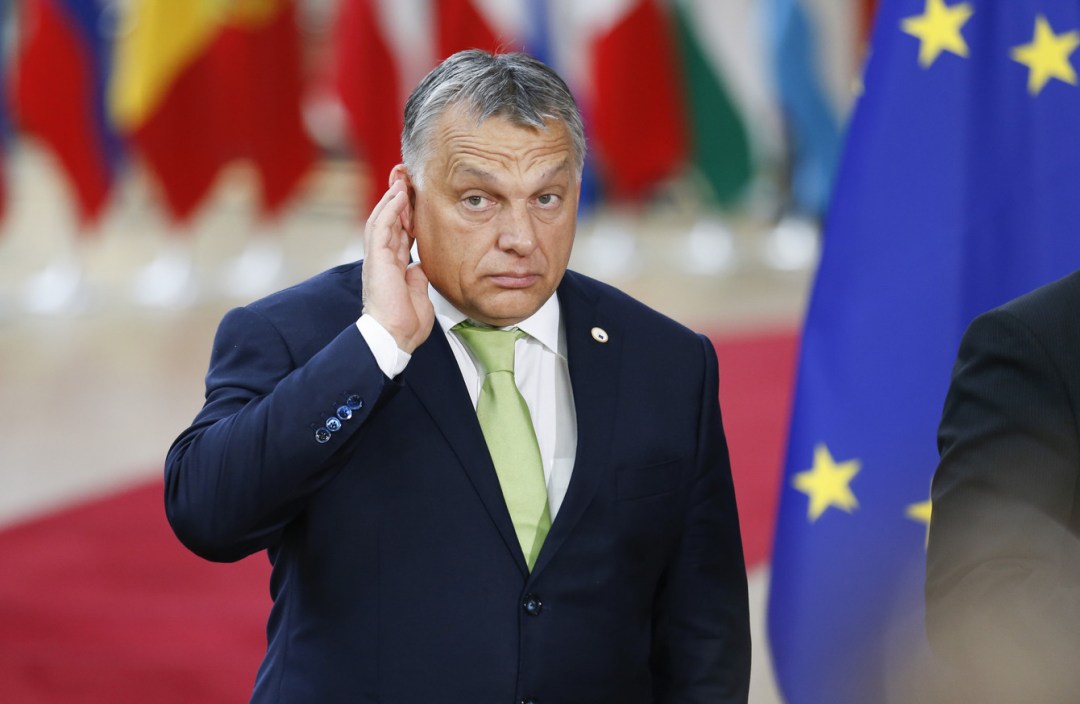
And the Hungarian prime minister continues to threaten to block the blockade:
- 50 billion euros (part of the money is also to be taken from frozen Russian assets), which the EU should send to the Ukrainian Fund for the restoration, reconstruction and modernization of our country for 2024-2027;
- the eighth tranche of 500 million euros in military assistance to Ukraine from the European Peace Fund
- 20 billion euros for military assistance to Ukraine under the European Peace Fund over the next four years.
So, will everything change soon and Orban will no longer be able to blackmail and "wave" his veto? Perhaps there are other options that will put this gentleman in his place? Let's try to find out.
To waive the veto, the consent of all EU members, including Hungary, is required. And this is exactly the main problem
"On November 22, the European Parliament approved a report on the need to reform the European Union, as well as proposals to realize this goal. The point is that the decision-making procedure within the EU can be changed by introducing the principle of voting by a qualified majority: two-thirds of the total number of member states representing at least 50% of the population, subject to the provision of special powers for small EU countries," Volodymyr Fesenko, Chairman of the Board of the Center for Applied Political Studies "Penta", comments to Ukrinform.
According to him, the report also envisages the introduction of a so-called enhanced qualified majority to make the most important decisions, such as the EU budget, member states' own resources, or modifications to EU agreements.
"The next step is to discuss these proposals at the EU leaders' summit in December this year. If there is an agreement to implement this reform, it will be necessary to launch a complex procedure for amending the treaties on which the EU's activities are based. It is expected that this reform should take place in parallel with EU enlargement, so that decisions can be made more quickly and efficiently in the enlarged EU. However, there is a risk that the implementation of this reform may be delayed due to problems with its coordination. We should not expect a quick solution to this issue," the political scientist says.
International expert Oleksandr Yusupov adds: "The EU is indeed considering reforms to allow decisions to be made by majority instead of unanimity, but this is a complex and time-consuming process."
The likelihood of such changes being implemented quickly remains low, he believes, given the potential resistance from member states that do not want to lose their veto power.
"For the EU to move from a unanimous vote to a qualified majority on certain decisions, unanimous consent of all member states is required. And last week's vote in the European Parliament is more of a recommendation, which indicates political will and is not legally binding. Countries such as Hungary, Poland and Slovakia can and will resist this change, seeing it as a loss of their national leverage," the expert believes.
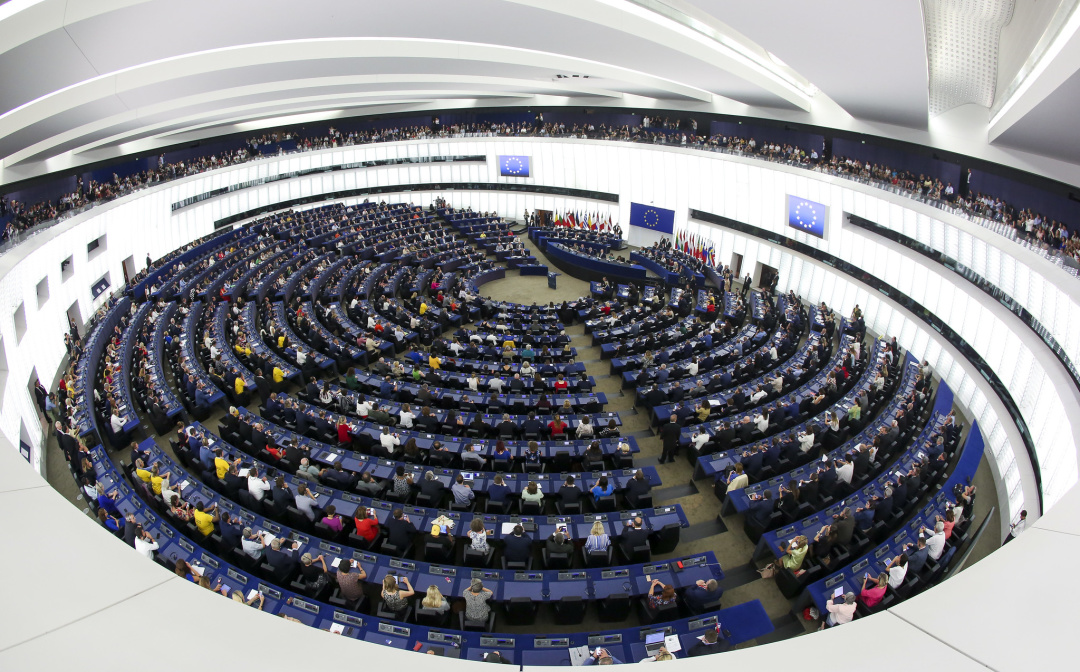
Orban's Hungary will be especially Eurosceptic, for which the right to veto EU votes has probably become the most powerful tool of the country's foreign policy.
"Probably, the government in Hungary will have to change to make this historic decision a reality. And in general, there are many pitfalls. Moreover, the principle of unanimity and Hungary's stubbornness sometimes play in the interests of large countries. For example, why should the leaders of France, the Netherlands, Austria, Italy and other skeptical states of EU enlargement come out and say that they are against the rapid accession of Ukraine and others, if Orban and his veto are there to do so? It is very convenient," Mr. Yusupov emphasized.
At the same time, Volodymyr Ohryzko, Minister of Foreign Affairs of Ukraine in 2007-2009, said that it is difficult to determine exactly what will be adopted as a result, because it is only the beginning of the process. But from a political point of view, it is already extremely important.
"This is an unambiguous signal to Orban that he will not be played with anymore. And the fact that he is now actually giving the EU ultimatums, blackmailing it, means that all this will come to an end. Budapest will realize this very quickly, because the process of reforming the EU in terms of decision-making will not take too long. This is one of the simplest knots that the European Commission will have to untie," the diplomat believes.
First, all this will be discussed at the ambassadorial level. Next, the heads of foreign affairs and other ministries will join in. Finally, after that, the heads of state and government of the European Union will have to coordinate everything on their own.
"In terms of the process itself, there is nothing complicated here. This decision does not involve any special economic calculations, rethinking, it is not about exhausting work, as it was during the UK's withdrawal from the EU, which lasted for years," says Mr. Ohryzko. If it is there, the decision will not be delayed. If not... In exchange for such a decision, Orban will probably demand and blackmail the European Union to give him more money. For him, this will be the last hope to snatch something for himself and thus stay in power for some time. So, answering the question of how soon the EU will move away from the principle of unanimity in making certain decisions, it may be in a few months, maybe in six months, a year, or even more."
Abandoning the practice of unanimity will mean that Orban will make his anti-European speeches mostly to his supporters.
"It seems to me that when such a decision is finally made, and it will be made without a doubt, Orban's political career will go downhill quickly and sharply. He needs to think now about how to change his approaches. However, I don't think he will be able to do this, because Orban is on a short chain from Moscow. This means that in the foreseeable future we will have a change of the ruling party in Hungary. After all, it is much more important for Hungarians to have normal relations with their EU partners than the economic problems that Budapest will face when decisions are made, particularly on financial issues, by a qualified majority," emphasizes Volodymyr Ohryzko.
Thus, according to experts, the process of moving from the veto mechanism to a qualified majority in the EU is not likely to be too fast. However, perhaps there are other options to "rein in" Orban as quickly as possible? The answer is yes, there are options.
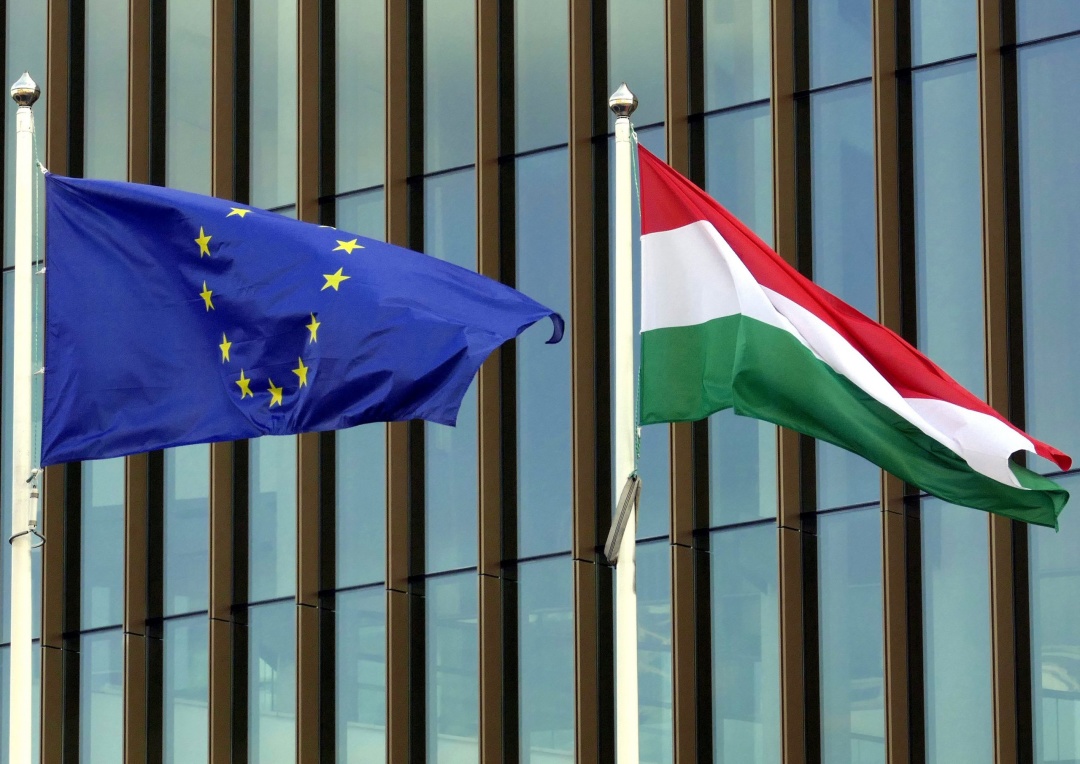
So far, the EU has decided to appease Budapest with a "carrot," but has reserved a "stick" option for it just in case
So far, the European Union has chosen the tactic of appeasement towards Hungary. That is, the EU is responding to Orban's numerous "antics" by giving Budapest money (we are talking about almost 1 billion euros) instead of punishing it.
"Well, what can you do - this is the whole of modern liberalism, when you really need to take a stick, they offer a carrot," Volodymyr Ohryzko sadly ironizes.
However, if Orban continues to sabotage, Article 7 of the EU treaty may be applied to Hungary.
"Simply put, to deprive Hungary of the right to vote in decision-making and to block payments from EU funds," adds Mr. Ohryzko.
This article states that if there is a clearly defined risk of serious violations by an EU member state of fundamental values (namely, freedom, democracy, equality, the rule of law and respect for human dignity and human rights, including minority rights), the said state may be deprived of certain rights in the EU, up to and including deprivation of voting rights in European institutions (in the EU Council and the European Council).
It is very important to emphasize here that the "sword of Damocles" called "Article 7 of the EU" has been hanging over Budapest for at least 5 years. Back in September 2018, the European Parliament adopted the so-called Anti-Hungarian Report by an absolute majority, which clearly identified 12 areas in which this country does not comply with European values and norms (this list is long, but it is worth recalling):
- the functioning of the constitutional and electoral systems;
- independence of the judiciary and other institutions and the rights of judges;
- corruption and conflicts of interest;
- privacy and data protection;
- freedom of speech, including media pluralism;
- academic (scientific) freedom;
- freedom of religion
- freedom of association;
- right to equal treatment, including LGBT+ rights;
- the rights of minorities, including Roma and Jews, and their protection from hate speech;
- rights of migrants, asylum seekers and refugees;
- economic and social rights.
Has the situation in Hungary changed for the better since then? No, it has become even worse. MEPs are convinced that Hungary is no longer a democratic state, but a "hybrid regime of elected autocracy."
"Since then, the situation has deteriorated dramatically. Hungary has become further away from democracy on each of the above points," stated Gwendoline Delbos-Corfield, the author of the report, a member of the European Parliament from France (Greens-European Free Alliance), in September 2022.
Mr. Ohryzko emphasizes that Hungary has exposed itself to the maximum: "At the level of the European Commission, this country has been constantly pointed out clearly and explicitly to resolve issues with judicial reform, media freedom, corruption... Against this background, the statements of Orban and Co. that Ukraine is light years away from EU membership because of alleged total corruption and so on look fantastically arrogant. But this is no longer surprising; Orban is simply practicing Moscow's methodology. Nevertheless, there are obvious grounds to invoke Article 7 against Hungary."
But here again, everything rests on political will.
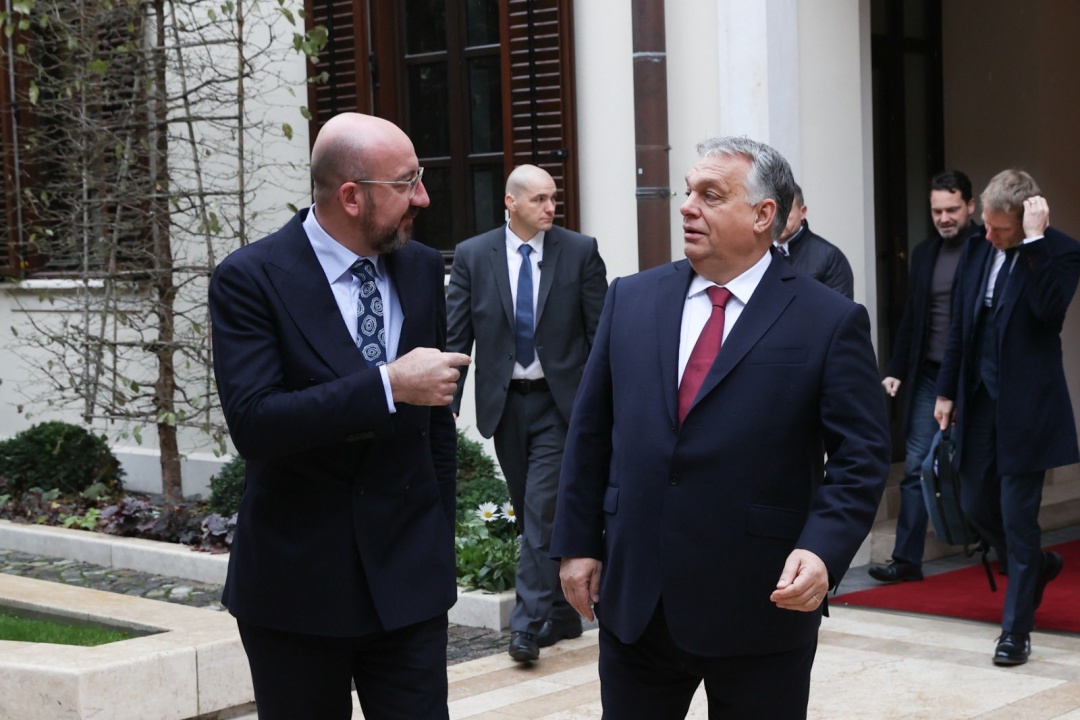
"The European Commission can either punish Hungary or continue the long and tedious process of education with periodic injections of additional billions into this country. Which way the EC will go is a question. However, on November 27, European Council President Charles Michel visited Budapest, where he explained to Orban quite directly what consequences he should expect if he continues to bend his anti-European, pro-Moscow line. I think the conversation was very useful," Volodymyr Ohryzko emphasized.
Volodymyr Fesenko believes that we will see the results of Michel's talks with Orban in December - at a meeting of the European Council (the summit of EU leaders): "Previously, certain compromises with Orban worked. Now Orban is a problem not only for us, but also for Brussels. They will use both carrots and sticks, financial and political instruments of influence, pressure and persuasion against Orban. It should also be borne in mind that if Orban blocks both the aid for Ukraine and the start of negotiations on our accession to the EU, he will not receive concessions and compromises from us or Brussels."
If he agrees after certain concessions, he will be able to blackmail us and the EU leadership for several more years.
"It is in his interest to stretch this process over time. But what is possible is to postpone the decision to start our EU accession negotiations until next spring. This is Orban's favorite tactic - blackmail and delay. However, it is Orban's behavior and the emergence of his "clones" in some other EU countries that will be a powerful argument for reforming the decision-making process in the EU," added Mr. Fesenko.
Speaking of "clones," our expert was referring to the pro-Russian Prime Minister of Slovakia Robert Fico, as well as Geert Wilders, the leader of the anti-European far-right Freedom Party, which recently won the Dutch parliamentary elections.
And this is Oleksandr Yusupov: "The EU has different strategies in its pocket. Short-term solutions may include negotiations with Hungary, possibly offering financial or political incentives to lift the veto. As we see, this is already happening. But this approach risks setting another precedent that other member states could follow. Another option: The EU could apply diplomatic pressure or try to circumvent Hungary's veto by finding alternative methods of supporting Ukraine, such as forming coalitions of willing member states. This option also seems realistic, especially since it is being lobbied by Germany, the largest economy and country in the EU."
As for the latter option, Bloomberg writes that the EU is currently considering a plan to provide Ukraine with €50 billion (for the restoration, reconstruction and modernization of our country for 2024-2027), bypassing Hungary's possible veto.
"In general, practice shows that the EU is able to find solutions in difficult political situations, it just takes time for bureaucracy," the expert summarized.
Myroslav Liskovych. Kyiv

